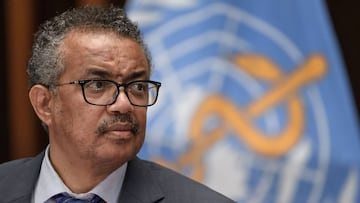How many times in history has the WHO decreed an international emergency and why?
The World Health Organization has declared a Public Health Emergency of International Concern seven times since the regulations were revised in 2005.


The World Health Organization (WHO) plays a crucial role in safeguarding global health. One of its most powerful tools is the declaration of a Public Health Emergency of International Concern (PHEIC).
The primary purpose of a PHEIC declaration is to catalyse timely, evidence-based action to limit the public health and societal impacts of emerging and re-emerging disease risks.
Since the revision of the International Health Regulations in 2005, the WHO has invoked this measure seven times, each instance marking a significant threat to global health security.
The seven PHEIC declarations in history
The first PHEIC was declared in 2009 in response to the H1N1 influenza pandemic, commonly known as swine flu.
In 2014, the WHO took the unprecedented step of declaring polio a PHEIC. It was thought that the disease had been eradicated and it still remains on the PHEIC list ten years later.
The devastating Ebola outbreak in West Africa from 2013 to 2016 prompted the third PHEIC declaration. The severity of the disease and its potential for international spread warranted this urgent call to action, resulting in 28,652 infections and 11,325 deaths in 10 countries.
2016 saw another first with the Zika virus epidemic becoming the first arboviral disease to be declared a PHEIC. The virus’s association with birth defects and neurological disorders raised significant concerns.
A second Ebola outbreak, this time in the Democratic Republic of the Congo, led to another PHEIC in 2018.
Related stories
The covid-19 pandemic, declared a PHEIC in early 2020, has been the most impactful global health emergency in recent history. Its rapid spread necessitated urgent action which led to powerful vaccines in mere months of the pandemic..
Most recently, the mpox (formerly known as monkeypox) outbreak was declared a PHEIC in 2022 due to its unusual spread across multiple countries and regions.


Complete your personal details to comment